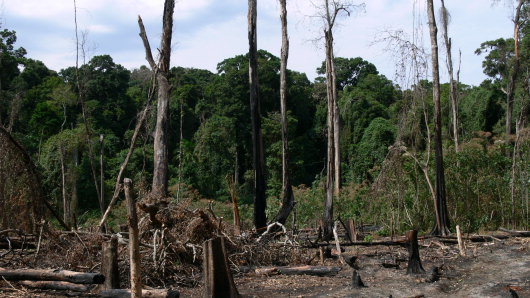The Forgotten Home of Coffee

Coffee is one of the world’s favourite drinks, one of the most important commercial crop-plants, and the second most valuable international commodity; Arabica coffee is considered to produce the finest coffee beans. Production of coffee helps support the livelihood of 25 million farming families around the world and it is estimated that around 32 pairs of hands are involved in bringing coffee from the plantation to the cup.
A study conducted by scientists at the Royal Botanic Gardens, Kew, in collaboration with scientists in Ethiopia, reports that climate change alone could lead to the extinction of wild Arabica coffee (Coffea arabica) well before the end of this century. Wild Arabica is considered important for the sustainability of the coffee industry due to its considerable genetic diversity.
The Arabicas grown in the world’s coffee plantations are from very limited genetic stock and are unlikely to have the flexibility required to cope with climate change and other threats, such as pests and diseases. In Ethiopia, the largest producer of coffee in Africa, climate change will also have a negative influence on coffee production. The climate sensitivity of Arabica is confirmed, supporting the widely reported assumption that climate change will have a damaging impact on commercial coffee production worldwide. These are worrying prospects for the world’s favourite beverage – the second most traded commodity after oil, and one crucial to the economies of several countries.
This film was produced as part of Kew Gardens’ IncrEdibles festival; a celebration of fascinating edible plants which runs until September 1st, 2013.
Find out more at: http://www.kew.org/incredibles
 Follow
Follow